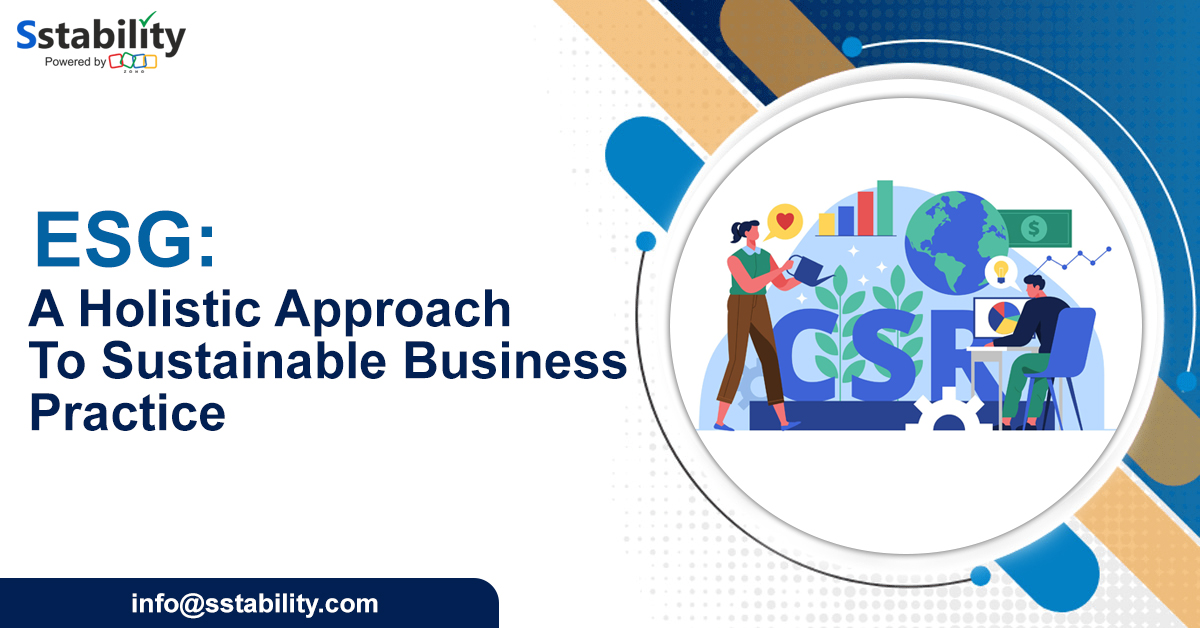
In recent years, the concept of Environmental, Social, and Governance (ESG) criteria has gained significant traction among businesses and investors alike. ESG represents a framework for evaluating a company’s performance and impact across three key areas: environmental sustainability, social responsibility, and corporate governance. While many discussions around ESG focus on compliance and reporting, its true essence lies in fostering a holistic approach to sustainable business practices that go beyond mere regulatory requirements.
Understanding ESG: More than Just Compliance
Environmental Sustainability
At its core, environmental sustainability within the ESG framework addresses how businesses manage their impact on the planet. This includes efforts to reduce carbon emissions, conserve natural resources, and adopt renewable energy sources. Beyond mitigating environmental risks, companies committed to ESG strive to innovate and lead in sustainable practices that contribute positively to climate resilience and biodiversity conservation.
Social Responsibility
Social responsibility encompasses how a company interacts with its stakeholders, including employees, customers, communities, and suppliers. It emphasizes fair labour practices, diversity and inclusion initiatives, and investments in community development. ESG-driven businesses prioritize fostering a workplace culture that values equity and inclusion, ensuring the well-being of their workforce, and actively supporting local communities through philanthropy and volunteerism.
Corporate Governance
Corporate governance refers to the systems and structures that guide the decision-making processes within an organization. Strong governance practices promote transparency, accountability, and ethical behaviour at all levels of the company. This includes robust board oversight, effective risk management frameworks, and adherence to legal and regulatory standards. ESG-focused governance ensures that companies uphold integrity in their operations and maintain trust with shareholders and stakeholders.
The Business Case for ESG Integration
Long-term Value Creation
Embracing ESG principles is not merely a moral imperative but also a strategic advantage. Companies that integrate ESG considerations into their business strategies are better positioned to manage risks, seize opportunities for innovation, and enhance long-term profitability. By aligning financial performance with social and environmental stewardship, organizations can attract investors who prioritize sustainable investments and build resilience against market volatility.
Stakeholder Expectations
Today’s stakeholders, including customers, employees, investors, and regulators, increasingly demand transparency and accountability from businesses. ESG reporting provides a platform for companies to communicate their sustainability efforts and demonstrate a commitment to ethical practices. Meeting stakeholder expectations not only strengthens brand reputation but also fosters deeper engagement and loyalty among diverse stakeholder groups.
How SSTABILITY Supports Your ESG Journey
SSTABILITY, our advanced ESG reporting software, is designed to empower organizations in navigating the complexities of sustainability management with confidence and efficiency. From comprehensive data integration to real-time analytics and stakeholder engagement, SSTABILITY enables companies to:
- Define and track ESG metrics aligned with organizational goals.
- Automate task management and streamline reporting processes.
- Ensure compliance with international standards and frameworks.
- Harness IoT and AI capabilities for accurate data collection and analysis.
- Facilitate meaningful stakeholder engagement and transparency.
- Prepare robust ESG reports that showcase commitment and impact.
Embrace Sustainable Excellence with SSTABILITY
Join leading organizations worldwide in leveraging SSTABILITY to drive meaningful ESG initiatives and cultivate a culture of sustainability within your organization. Visit https://sstability.com/ to learn more about how SSTABILITY can transform your approach to ESG reporting and empower your organization to thrive in a sustainable future.
Embracing the Future of Responsible Business Practices
ESG represents more than a checklist—it’s a strategic framework that empowers businesses to create value while contributing positively to society and the environment. By embracing ESG principles and leveraging advanced tools like SSTABILITY, organizations can embark on a journey towards sustainable excellence, driving innovation, resilience, and long-term success in a rapidly changing world.
